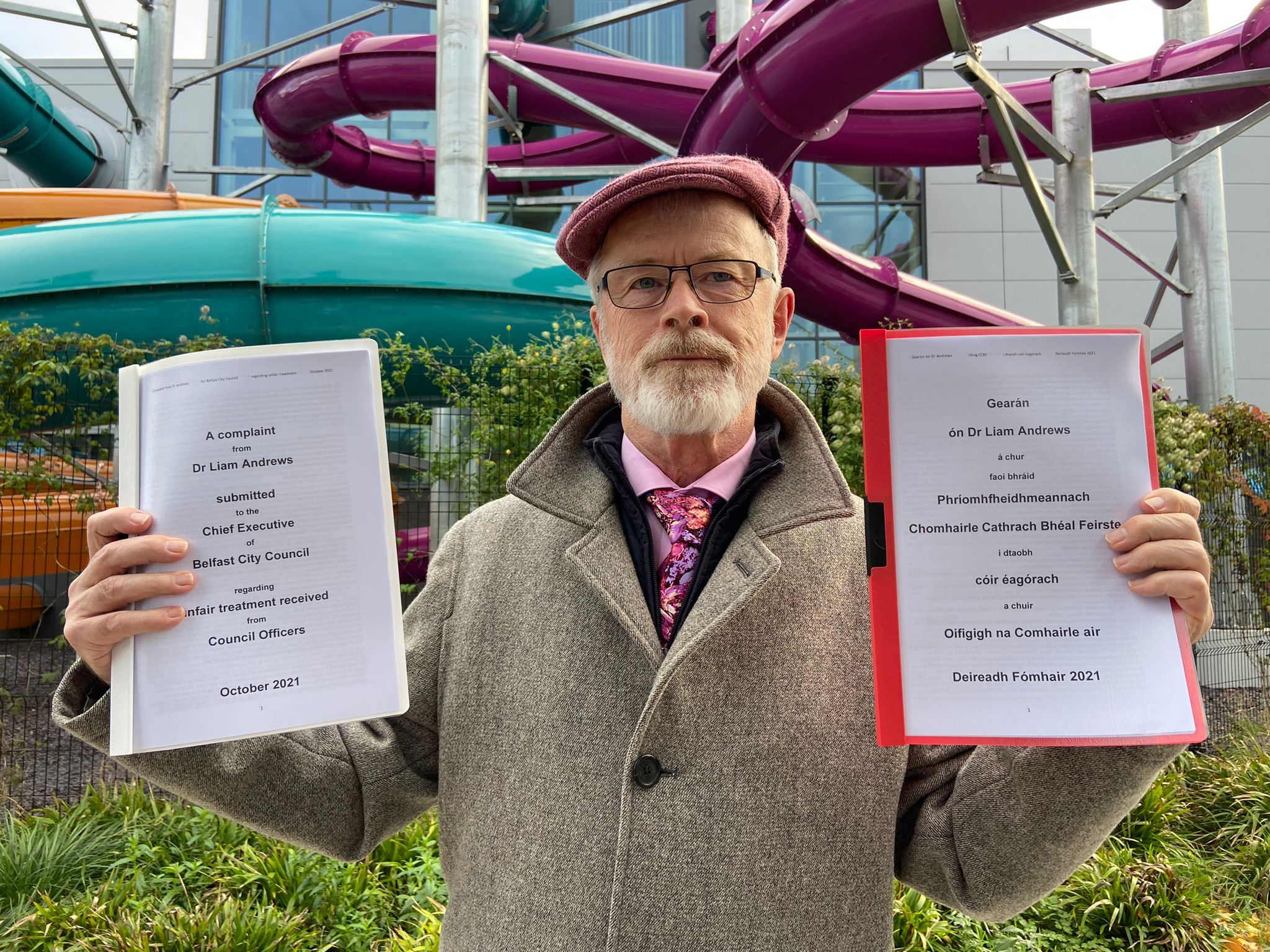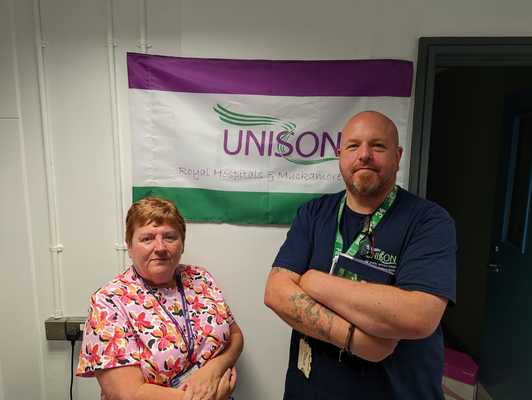A LEADING West Belfast academic has raised concerns about the accuracy of Irish language signage at Andersonstown Leisure Centre, which he says points to drastic flaws in the Council's Language Strategy.
Dr Liam Andrews – a language policy researcher and senior member of Belfast's Irish language community – has written a complaint to Belfast City Council's Chief Executive outlining issues around what he describes as "unintelligible" signs in the £25million centre.
He said he is worried about "the adverse effect that they might have on young Irish-speaking children".
In his complaint, Dr Andrew's said the signs are "English dressed up as Irish" and are based on a presupposition that all Irish speakers have a firm grasp of the English language. He insisted the anglicisation of Irish is likely to "confuse Irish speakers", particularly those without good English including young children.
The Shaw's Road Gaeltacht residents said translators have applied English idioms and structures to the Irish language, rendering the Irish versions of the signs "unintelligible". Examples include 'Wet Change / Gléasadh Fliuch', 'Changing Village / Sráidbhaile Gléasta', 'Fitness Changing / Gléasadh Aclaíochta' and 'Fitness Store / Stóras Aclaíochta'.
Dr Andrews told the Andersonstown News that the signs are a "symptom" of a flawed language policy that makes no room for "language planning", which would aid the acquisition and structure of the language.
Having had several meeting requests rejected by Council Officials, Dr Andrews accused the Council of attempting to "frustrate" efforts to address the problem, thereby denying him "fair treatment".
He has called on the Council's Chief Executive to carry out a "comprehensive review of the Council’s Language Strategy in relation to Irish".
The West Belfast man urged the Chief Executive to explain how officials have developed "attitudes and work practices which appear to be at variance with that Strategy".
"The Language Strategy states that work with language communities in the city should be developed through engagement with them," he wrote.
"To what extent has meaningful engagement taken place with the city’s Irish-language community? Based on my experience, such engagement appears to be wanting.
"Arguably one of the consequences is the decision made, without appropriate consultation, to erect signage using anglicised forms of the Irish language on Council property."
A Belfast City Council spokesperson said: “A procedure is in place to deal with complaints, and any correspondence received will be responded to in line with that process.”







